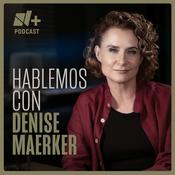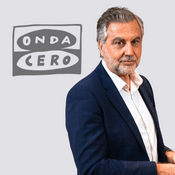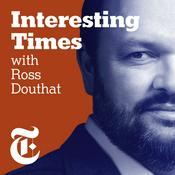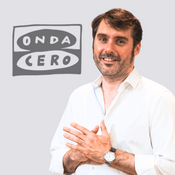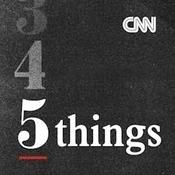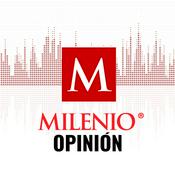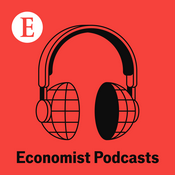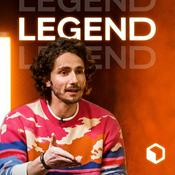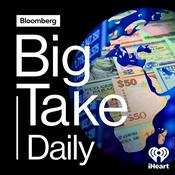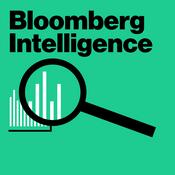39 episodios
- Eliot Assimakopoulos, CEO of Realizse and former GE microgrid pioneer, discusses a critical barrier to clean energy deployment: "stranded abundance." Despite available capital and valuable incentives, friction in finance prevents these resources from connecting, limiting microgrid and DER project development.
Eliot Assimakopoulos
CEO, Realizse
Former Marine Corps Captain
20 years at General Electric leading microgrid solution development
Early pioneer in the microgrid space
The Stranded Abundance Problem
Valuable incentive programs (ITC, 179D, state incentives) exist but remain underutilized
Capital exists but doesn't trust complex value streams
Example: Heat pump programs can access 50% ITC but developers avoid it due to complexity and risk
Historical Parallels
Printing press and the democratization of knowledge
Gold rush: connecting stranded gold with stranded capital through infrastructure (Wells Fargo)
The Solution: Web3 and Decentralized Finance
Using blockchain, smart contracts, and automation to create trusted data frameworks
Integrating compliance data with insurance (similar to telematics in fleet vehicles)
Removing ITC recapture risk through data-driven insurance products
Creating investible assets from energy data
Two Sides of Abundance
Removing friction to build (permits, interconnection, supply chain)
Removing friction to finance (trust, complexity, risk management)
Energy abundance requires both reducing building barriers AND financing barriers
Trusted data infrastructure can unlock stranded capital pools
Tokenization and alternative investments are creating new opportunities
The shift toward private markets and granular asset transparency enables liquidity
Democratization of both energy AND finance is the ultimate goal
Ezra Klein's work on abundance agenda
Larry Fink's 2025 investor letter on tokenization
Inflation Reduction Act (IRA) incentives
179D building energy efficiency tax incentive
For more information, visit energychangemakers.com - The explosive growth of AI training centers is creating unprecedented challenges for the electric grid. In this eye-opening conversation, Kay Aikin reveals why gigawatt-scale data centers like Stargate aren't just about needing more power—they're creating stability threats that could collapse entire grid systems. Learn why virtual power plants can't solve this problem, what new technologies are needed, and how the regulatory landscape must adapt to handle loads that can spike by several gigawatts in seconds.
Key Topics
Introduction
Three Types of Data Centers
AI Training Centers: The Game Changer
The Ramp Rate Problem
Why Virtual Power Plants Can't Help
What Solutions Could Work
The Battery Challenge
Interconnection Roadblocks
Microgrid Alternatives
The Regulatory Challenge
Broader Infrastructure Crisis
The Incentive Problem
Systems Thinking Approach
Resources mentioned
NERC Study: National Electricity Reliability Corporation report on large load impacts
Energy Hub VPP White Paper: Recent publication on virtual power plant capabilities
Previous Podcast: "Are We Expecting Too Much From Virtual Power Plants?" with Kay Aikin, Mark Patterson, and Lorenzo Kristov
GridWise Architecture Council: Organization focused on power systems architecture
Kay's Website: www.innovate8futures.com (Regenerative Futures - systems thinking resources)
Kay Aikin is CEO of Dynamic Grid and a systems engineer specializing in electrical grid architecture. She serves on the GridWise Architecture Council and is known for her forward-thinking approach to grid transformation challenges. Kay focuses on distribution network challenges, DER integration, and holistic systems design.
Elisa Wood is the host of the Energy Changemakers Podcast, which features conversations with industry leaders about building the decentralized grid. She can be reached at [email protected].
Have thoughts on this episode? Reach out to Elisa at [email protected] or use the thumbs up/down buttons to provide feedback.
Listen to the Energy Changemakers Podcast on your favorite platform to stay informed about the latest developments in grid transformation and distributed energy. - This episode explores "speed to power" - the urgent need for data centers to access electricity quickly to support AI infrastructure growth. Anna Demeo explains why the fast-moving world of hyperscalers (Google, Meta, Microsoft) is colliding with the cautious, regulated utility industry, and what innovative solutions might bridge this gap.
Guest Bio: Anna Demeo
Anna Demeo, PhD is an industry executive at the intersection of energy and decarbonization with 30 years of experience integrating hardware and software to develop, commercialize, and scale sustainable energy solutions. She is the Managing Partner at Clean Tech Strategy Advisors, where she advises corporations, startups, and investors navigating the clean tech landscape. - Right now, the term "energy abundance" seems to be everywhere. It springs from Ezra Klein and Derek Thompson's book Abundance, which argues that we have too many rules and procedures bogging down the construction of clean energy, housing, and other needed infrastructure. While the book has created debate in both the power industry and political arenas, this episode moves away from the politics of abundance to focus on the economics of abundance.
Host Elisa Wood sits down with energy economist Mariko Geronimo Aydin to explore how the abundance agenda fits into an industry where markets traditionally make money via scarcity, not abundance. Mariko offers unique insights into thinking about energy abundance from an economist's perspective and shares the innovative work happening at the Earthshot Foundation through their Gridiron Dialogues.
Guest Bio
Mariko Geronimo Aydin is an energy economist with 20 years of experience working as a consultant to regulators, utilities, and developers across the country. She specializes in resource planning (including generation and transmission portfolios), cost-benefit analysis, market design, and incorporating resilience measures into grid planning. Currently serving as Chief Economist and Senior Fellow at the Earthshot Foundation, Mariko focuses on advancing economic frameworks that support sustainable and abundant energy systems, with recent work concentrated on California's resource planning challenges. - Rooftop solar is far more affordable in other countries than it is in the United States, and the gap has little to do with technology. In this conversation, Elisa talks with Nick Josefowitz, Chief Executive of Permit Power, about why American families pay so much more for rooftop solar and how outdated permitting, utility requirements and fragmented local rules create unnecessary barriers.
Nick explains what “soft costs” are, why they account for nearly 80 percent of the cost of residential solar in the US, and how automated permitting could dramatically lower costs, reduce delays, and help millions of households save on their utility bills. They discuss state-level solutions, the potential for nationwide standardization, and the real economic benefits of making solar installation easier, faster and more predictable.
If your company works in distributed energy or home electrification, this episode offers a practical look at policy tools that can expand the solar market, reduce customer churn, and support installers who are struggling under inconsistent local rules.
Nick Josefowitz is the Chief Executive of Permit Power, a nonprofit advocacy organization dedicated to making home solar and batteries more affordable and accessible. Permit Power works to cut through the red tape that keeps installation costs high in the United States by advancing automated permitting, streamlined interconnection, and state-level policy reform. The organization conducts research, provides policy guidance, and partners with lawmakers, installers, and local governments to modernize outdated systems.
Relevant Links
• Permit Power: https://permitpower.org
• Automated permitting resources via the SolarAPP+ initiative (DOE)
• Brown University Climate Solutions Lab research on local government efficiency
• Energy Changemakers community: https://energychangemakers.com
Call to Action
If you are an installer, developer, or policymaker working in distributed energy, Permit Power wants to hear from you. Your stories and real-world experience help shape policy solutions that make rooftop solar more accessible for every American family.
Connect with Elisa and the Energy Changemakers community at energychangemakers.com and subscribe for updates, insights, and upcoming episodes.
Más podcasts de Noticias
Podcasts a la moda de Noticias
Acerca de Energy Changemakers Podcast
As the energy grid faces unprecedented changes, local energy solutions are increasingly needed. Hosted by Elisa Wood, an experienced energy journalist, The Energy Changemakers Podcast brings you into the heart of these transformations. Each episode features in-depth discussions with industry leaders pioneering the move toward a decentralized grid. From technological innovations to policy changes — discover actionable insights to help your company leverage emerging opportunities. Join us at The Energy Changemakers Podcast and be part of the conversation that shapes our energy future.
Sitio web del podcastEscucha Energy Changemakers Podcast, La Estrategia del Día México y muchos más podcasts de todo el mundo con la aplicación de radio.net
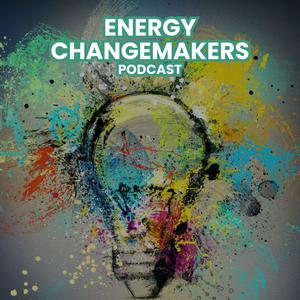
Descarga la app gratuita: radio.net
- Añadir radios y podcasts a favoritos
- Transmisión por Wi-Fi y Bluetooth
- Carplay & Android Auto compatible
- Muchas otras funciones de la app
Descarga la app gratuita: radio.net
- Añadir radios y podcasts a favoritos
- Transmisión por Wi-Fi y Bluetooth
- Carplay & Android Auto compatible
- Muchas otras funciones de la app


Energy Changemakers Podcast
Escanea el código,
Descarga la app,
Escucha.
Descarga la app,
Escucha.



